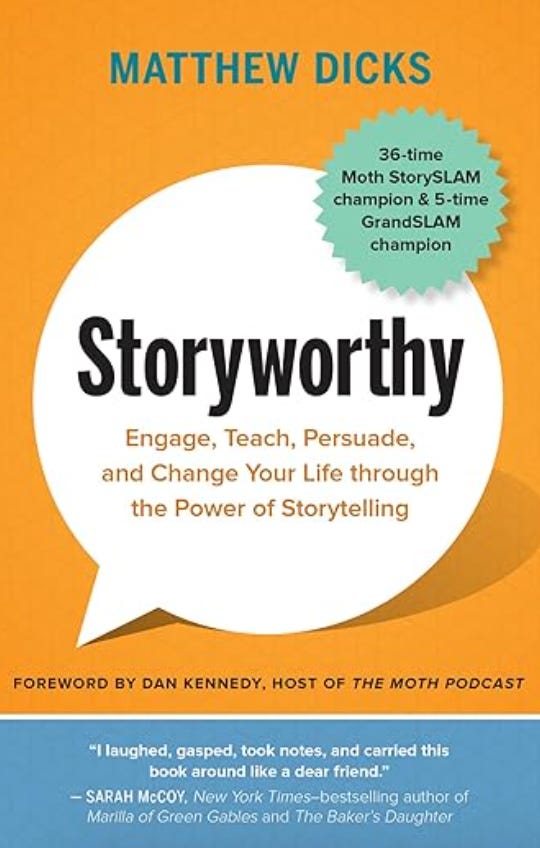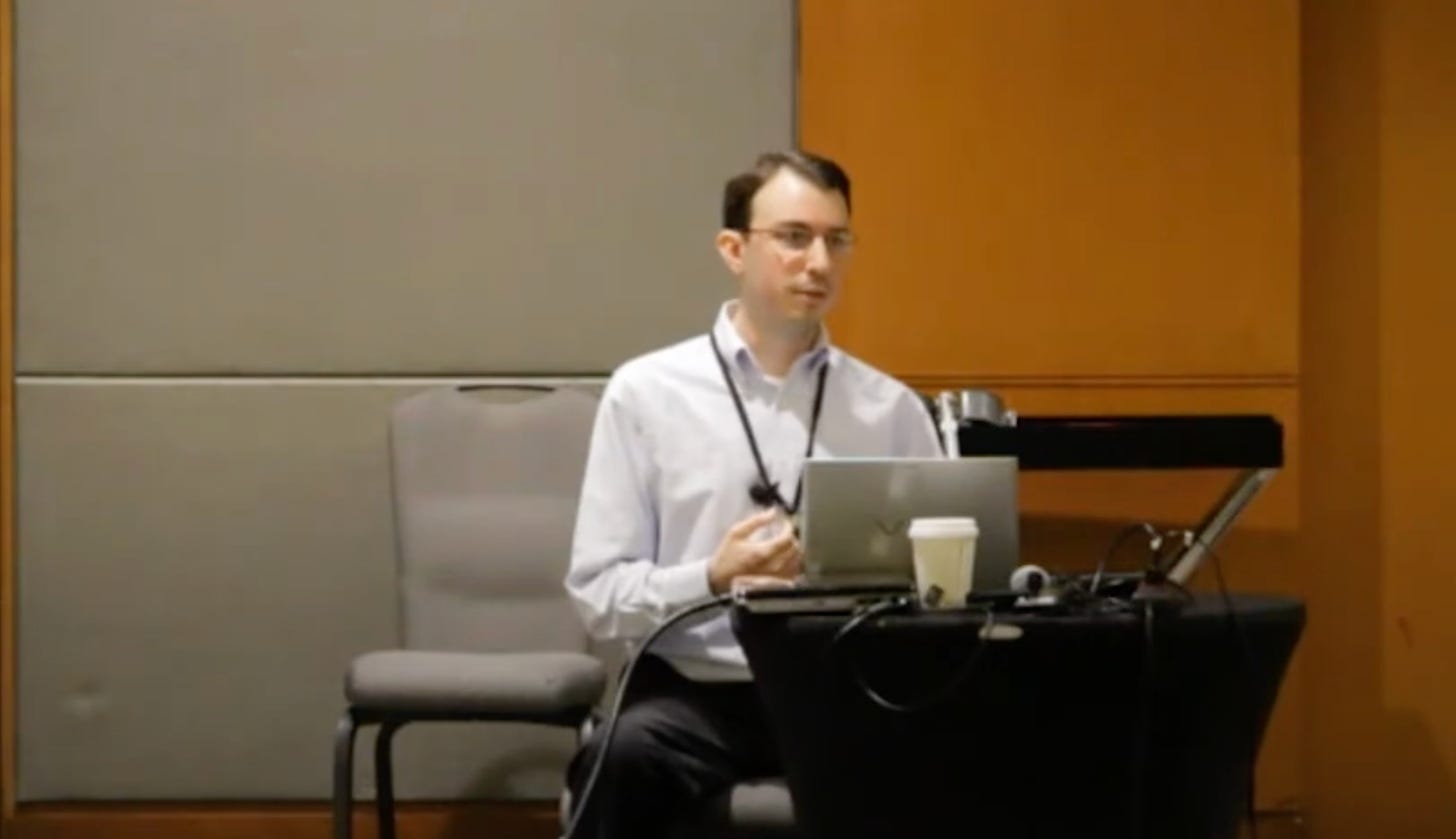Public Speaking Is Not Scarier Than Death
At least, not when you follow these twelve strategies

Any time I tell someone that I love public speaking, they look at me like I have three heads. As soon as the words come out of my mouth, their face contorts in horror and they let out an audible, high-pitched squeal.
After a few seconds, they regain their composure, only to imply that I’m some sort of freak. “Ew, I hate public speaking,” they say matter-of-factly. “There’s no way I could do that.”
I used to be this way, so I get it.
There are many reasons public speaking terrifies us. Some people have low confidence and self-esteem. Others are introverts. Still others are scarred by cringe-worthy presentations from back in high school.
Public speaking is its own form of adversity; studies show that people fear it more than death. Or as Jerry Seinfeld puts it, “This means to the average person, if you have to be at a funeral, you’d rather be the person in the casket than doing the eulogy.”
A trainwreck of my own doing
Regardless of whether people actually fear public speaking more than death, what’s indisputable is that standing in front of a room sends our nervous system into overdrive. It’s so scary that it even has its own phobia — glossophobia.
When we’re the center of attention, everyone is looking at us; if we don’t deliver, we’re screwed. Or worse, laughed out of the room. It’s as if dozens of eyes are staring directly into our souls, laying bare all our deepest insecurities.
Growing up, I was mortified by public speaking. Every time I had to present to my classmates, I’d break out into a cold sweat. My voice would crack. I’d forget what I had to say and then have to read word for word off the PowerPoint slides.
There would always be some sort of catastrophe. One time in middle school, I was presenting on the geography of Saskatchewan and I couldn’t get the name right, even though I said it perfectly thousands of times before. “Sas…saska…chewin?”
You don’t know disappointment until you’ve seen your geography teacher shaking their head at a mispronounced province name.
From cringeworthy to captivating
It turns out that public speaking is like any other skill; the more you do it, the better you get at it.
Once I started sharing my patient story at research conferences, my childhood insecurities vanished. I saw firsthand the impact that a well-crafted story has on an audience. I believed in the message I was conveying, which filled me with a quiet confidence.
For the first time in my life, I had found my speaking voice. No more sweaty palms. No more voice cracking (except when my throat gets hoarse). No more fear that I’ll be ostracized and shunned by society.
My evolution as a speaker is proof that anyone can do it, which is important because public speaking is one of those skills you’ll have to use eventually. You can only run from it for so long.
Twelve helpful strategies
Today, I’d like to share twelve strategies that have helped me become a more confident public speaker. These strategies won’t banish your nerves altogether (which isn’t realistic), but they will allow you to seize the moment and rock your next presentation.
At minimum, they will make public speaking less scary than death.
Remember that nerves are normal. As Mark Twain said, “There are two types of speakers: those that are nervous, and those that are liars.” If you feel nervous before a talk, guess what? You’re just like everyone else who has ever taken the stage. It’s completely normal. Nerves show that you care and want to do well.
Have a pre-talk routine. In his book, Master of Change, performance coach Brad Stulberg refers to routines as “bedrocks of predictability”. Routines keep us grounded, anchoring our minds in the here and now instead of fretting about the uncertainty to come. Routines can be as simple as listening to motivational music, saying a prayer, or repeating a mantra. My routine consists of deep breathing and visualization exercises. I picture myself giving the talk from beginning to end, in as much detail as possible. It works!
Emulate those you admire. We’ve all been captivated by a powerful speaker at some point in our lives. Maybe you saw an inspiring TED Talk or a coworker give an effective sales presentation. Maybe you witnessed a moving sermon or a sports coach pump up their team before a big game.
If there’s someone you admire as a speaker, try to emulate them. If you can, watch a recording of one of their talks. Study their mannerisms, their cadence, and the inflection in their voice. Pay attention to how they move around the room, their posture, and their use of pauses. Track how they structure an argument or use anecdotes and stories. Whatever you like about them, incorporate these traits into your speaking style.
Speak in stories. Stories are a powerful way to convey a message and should be used in any presentation, even if you’re discussing something as dry as a new accounting method or the results of a marketing survey. If you can, begin with a story that piques the audience’s attention. If that’s not possible, try to pepper your talk with anecdotes that help to humanize whatever you’re discussing.
Stories create an emotional connection with your audience. Years from now, they won’t remember the topic of your presentation; they’ll remember the stories you told.
If you need help telling better stories, my friend Valerie Gordon recently wrote about five storytelling strategies to use in your next presentation. If you’re looking for a handy reference guide, I also recommend Storyworthy, by Matthew Dicks.
Practice, practice, and practice some more. Depending on the talk, I will rehearse at minimum 5-10 times beforehand. Some people rehearse dozens or hundreds of times. The key is to practice until you form a mental map of what you plan to say. Even if your presentation is data-heavy and requires reading off slides, you always want to have an idea of where you are in your talk and what comes next.
Practice will keep your mind from going blank and panicking.
If you need to use notes or slides, use bullet points, not full sentences. Notes are okay, but you can become overly reliant on them, especially if you haven’t practiced enough. The same goes for PowerPoint slides. Once you start using notes, it’s really hard to go back.
If you need notes, use bullet points. It’s just enough information to jog your memory and get you back on track without going overboard. What you don’t want to do is script out your entire talk and then read the script word for word. There’s nothing worse for a listener! It’s an affront to ears everywhere. I had a professor in business school who would write full paragraphs on his slides and read them in their entirety. It was miserable.
Make your talk at least two to three minutes shorter than the time limit. If your talk is supposed to be ten minutes, prepare a seven-minute speech. If you have five minutes, make your talk three minutes. The reason? We almost always blow past the time limit. We lose our train of thought, or we riff on an anecdote longer than we expected to. (Another reason to practice.) Somehow, the time always fills up. This provides a buffer just in case.
If you finish early, you can always do an impromptu Q&A.
Watch your cadence - Too many speakers talk either too fast or too slow. I was at a conference once where a speaker talked so fast that I thought I was listening to a recording at 2x speed. It was awful. I retained nothing from his talk because there was no opportunity to absorb the information.
On the other side of the spectrum are those who speak so painfully slow that the audience grows impatient. (I don’t mean people who are unable to talk fast, just those who choose not to.)
A steady cadence is everything. Talk like a normal person and you’ll be fine.
Make yourself relatable. If you’re super nervous when you go on stage, admit it to the audience; this will humanize you in their eyes. You don’t need to say “I’m a terrible public speaker” — you don’t want to diminish their expectations — but it’s okay to admit you have butterflies.
When I start a talk, I always say that at some point, I’ll start coughing. (Which is true.) That way when it happens, it’s less awkward and it makes me feel less nervous.
At the end of the day, audiences want to hear someone they can relate to. When you can remind them that you’re a human being, you are more likely to win them over. It shows that you’re one of them, not some speaker with an inflated ego talking down to the crowd.
Focus on one person in the audience. There is always at least one familiar face in the audience, whether it’s a family member, a friend, or the person who invited you to come speak. Any time you feel yourself getting nervous, look this person in the eyes. Pretend you’re having a conversation with just them. (Just don’t stare for too long — you don’t want to make it weird.)
If you don’t know anyone, look for a friendly face. If you make a joke and someone laughs, choose them.
Record yourself. Use your computer or phone to tape yourself giving the talk. It will be uncomfortable and awkward, but there is no greater learning tool. The sooner you identify any mistakes or weird mannerisms, the better. Also, pay attention to how often you say “um”, “basically”, or “you know.” Those are common filler words that we say out of habit. Taping yourself will make this clear. Better to eliminate them now rather than annoy your audience later.
Convey your passion. If you believe in what you have to say and convey that passion to the audience, they will respond positively. You don’t have to be an eloquent presenter to speak with conviction. As with stories, your passion for the topic is what people will remember, not specific facts or the way you structured your argument.
When you are excited about the topic, this makes public speaking so much easier and satisfying.
What do you think?
I’d love to know — how do you feel about public speaking? If you hate it, what makes you nervous? If you love it, how did you become comfortable? Let me know in the comments below. 👇
And if you have any favorite speaking tips, share those too!







I don't even find public speaking that terrifying, and I still found these tips super helpful. They also helped me confirm my approach! Thanks for this.
This is great, Chris. I still stand by the trick I learned at 19: Walk on stage with a smile and look at people in the eye until they break it or smile back. It only takes 3 or 4 folks, and then you own the space. And always be humble and human. There will always be people there who want to love you and people there looking for flaws. But everyone will know when you are being genuine. Can't wait for your TEDx! xo